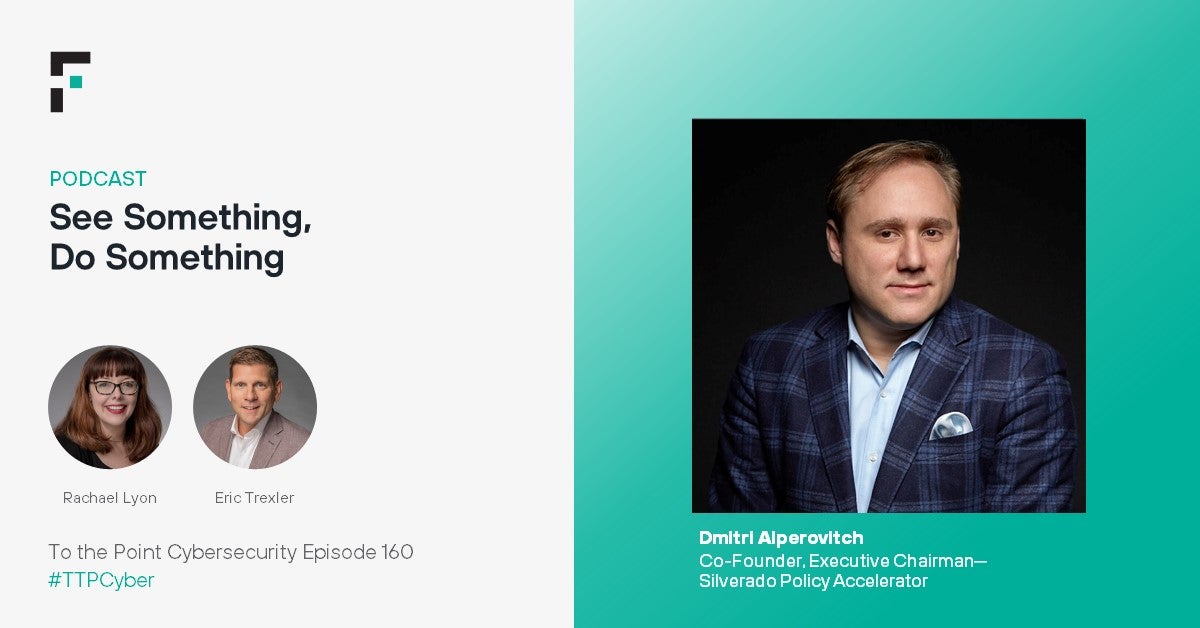Why Cybersecurity Cannot Be Separated from National Security
0 minutes de lecture

Recently, in Maryland, John Hopkins University launched a new cybersecurity institute within its School of Advanced International Studies, one of the leading international affairs schools in the country. This institute aims to develop the next generation of strategic cybersecurity professionals through Master’s, PhD and executive education programs, is named after Dmitri Alperovitch.
In a recent podcast, “See Something, Do Something,” Dmitri Alperovitch discusses the overlapping worlds of cybersecurity and international affairs. Throughout the session, his extensive expertise is clearly on display. Previously, he co-founded the Silverado Policy Accelerator, a non-profit focused on advancing solutions to critical geopolitical and cybersecurity policy challenges, and the cybersecurity company CrowdStrike. He has also served as special advisor to the US Department of Defense.
In the episode, Alperovitch brings a particularly important perspective to the table as we think about threats like ransomware or supply chain attacks. To decontextualize the technology from politics is to miss the forest for the trees.
Imagining Future Cyber Invasions
In addition to his contribution and recognition through the Alperovitch Institute, Alperovitch has also been named as one of Fortune Magazine’s 40 Under 40, MIT Technology Review’s Innovators Under 35, Politico’ Magazines Politico 50 and Foreign Policy Magazine’s Leading Global Thinkers.
In To The Point Episode 160, Alperovitch covers a lot of ground. He dives into:
- Why the cybersecurity industry needs to think more about policy and focus more effort into training tomorrow’s cybersecurity professionals to do the same.
- How American venture capitalists are (intentionally or not) funding cybersecurity adversaries in foreign countries in the name of turning a profit.
- Why the supply of semiconductors, including the supply chains for older chip technologies, represents a looming national security threat.
- How cybersecurity intersects with ecological and economic security.
- How offensive operations took the REvil group offline and what we can learn from it.
While there’s heightened focus on the relationship between information and politics in the age of Facebook and Twitter, the reality is that information operations have been going on for at least a century. As we move forward, however, a cybersecurity incident has even greater potential to disrupt people’s lives. Don’t miss this important and illuminating conversation on why.

On a related note, Johns Hopkins unveiled The Alperovitch Institute at a launch event that took place on top of the International Spy Museum in Washington D.C. (in case you missed it, we also interviewed the museum’s curator, Dr. Andrew Hammond). Both podcasts are part of Forcepoint’s To the Point podcast series on a broad and exciting range of cybersecurity topics. We invite you to listen in.
- Dmitri Alperovitch - To The Point Cybersecurity Ep. 160
Dans l'article
 Dmitri Alperovitch - To The Point Cybersecurity Ep. 160 Listen Now
Dmitri Alperovitch - To The Point Cybersecurity Ep. 160 Listen Now
X-Labs
Recevez les dernières informations, connaissances et analyses dans votre messagerie

Droit au But
Cybersécurité
Un podcast couvrant les dernières tendances et sujets dans le monde de la cybersécurité
Écouter Maintenant